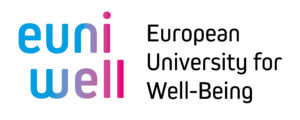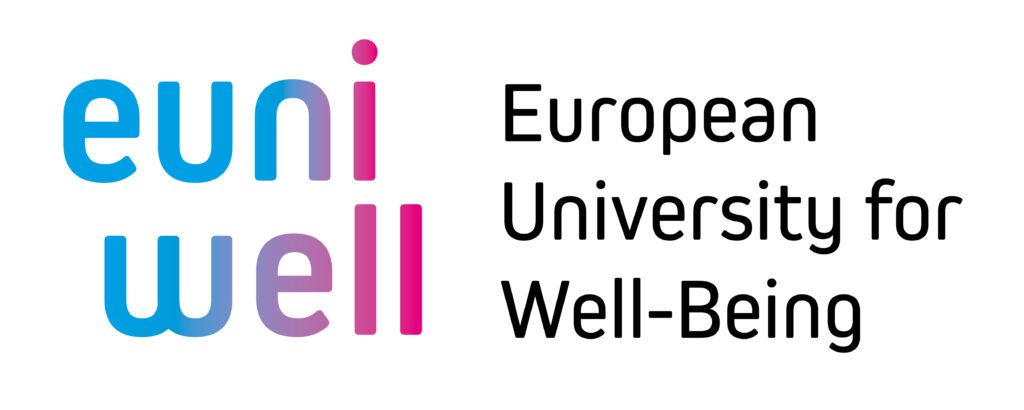EUniWell presentation
EUniWell – the European University for Well-Being – is one of 50 European University Alliances, selected for funding by the European Commission under the ERASMUS+ programme in 2020. EUniWell is formed by 11 Higher Education Institutions: the University of Birmingham (UK), the University of Cologne (Germany), the University of Florence (Italy), Inalco (France), the University of Konstanz (Germany), Linnaeus University (Sweden), University of Murcia (Spain), Nantes Université(France), the University of Santiago de Compostela (Spain), Semmelweis University (Hungary), and Taras Shevchenko National University of Kyiv (Ukraine)
With its focus on well-being, EUniWell responds to the Council of the European Union’s invitation for member states to pursue a horizontal, cross-sectoral, knowledge-based approach to advance the ‘Economy of Wellbeing’ (24 October 2019), a virtuous circle between society, science and the environment, leading to greater well-being across those dimensions

More information available on EUniWell’s website.

What is Open Education ?
Definition
According to the European Commission, Open Education is «a way of carrying out education, often using digital technologies. Its aim is to widen access and participation to everyone by removing barriers and making learning accessible, abundant, and customisable for all. It offers multiple ways of teaching and learning, building and sharing knowledge. It also provides a variety of access routes to formal and non-formal education, and connects the two».
More generally, and as stated in the Cape Town Declaration, Open Education is also accepted as “creating a world where each and every person on earth can access and contribute to the sum of all human knowledge […] planting the seeds of a new pedagogy where educators and learners create, shape and evolve knowledge together, deepening their skills and understanding as they go”.
EUniWell’s commitment towards Open Education
As stated in its Declaration on Open Education, EUniWell as an alliance as well as its 11 Higher Education Institutions members adhere to the principles of the Cape Town Open Education Declaration, recognising Open Educational Resources (OER) and Practices (OEP) as “a crucial pathway to share learning material between teachers and institutions” and having the “potential to make education more inclusive and collaborative”.
EUniWell committed to encourage the sharing and development of OER, promote OEP and to build an alliance joint approach towards Open Education.
More information on EUniWell’s commitment in EUniWell Declaration on Open Education
Approach and objectives of the blog
The EUniWell Open Education blog is animated by its Editorial Committee, composed of representatives from EUniWell Higher Education Institutions partners with various profiles, roles and responsibilities but with a shared interest for Open Education.
Open Education going hand in hand with multilingualism and our Editorial Committee being, like Europe, profoundly multilingual, all articles are published in its author’s European mother tongue and translated – at least – in English.
This blog is designed to be a forum for exchange, crossroads to share thoughts, question and reflect on Open Education concepts and applications at large and explore the relation between Open Education and Well-Being.
Finally, this blog is intended to inform, inspire and invite to participate EUniWell’s academic communities and beyond on Open Education Resources and Practices.
